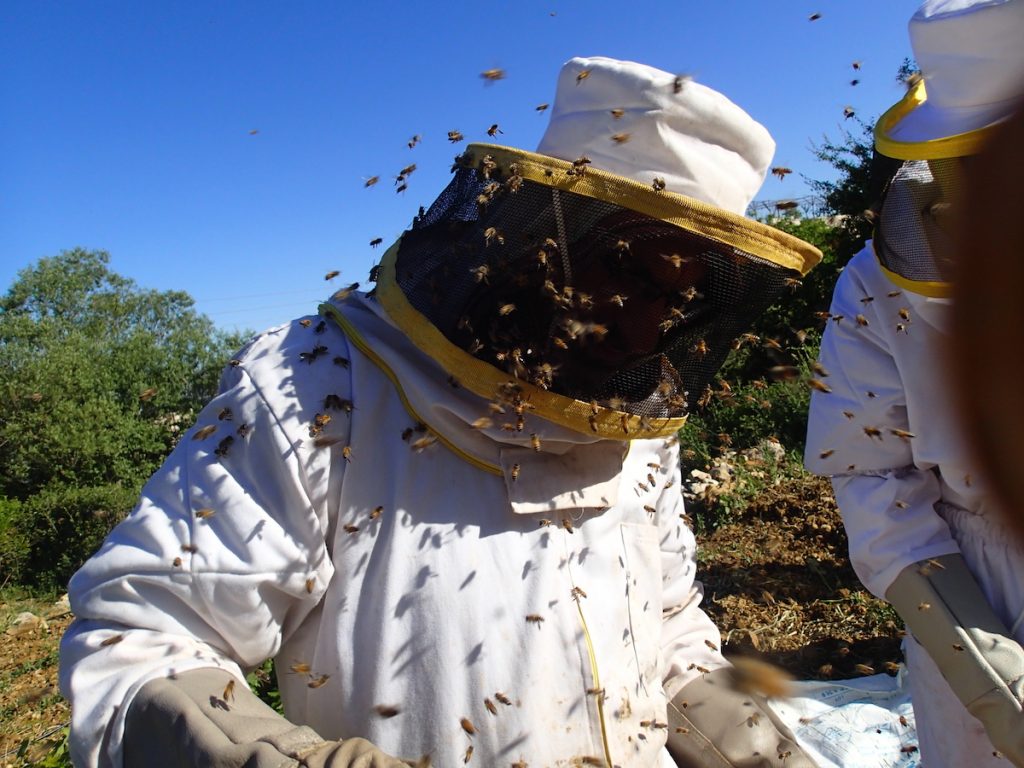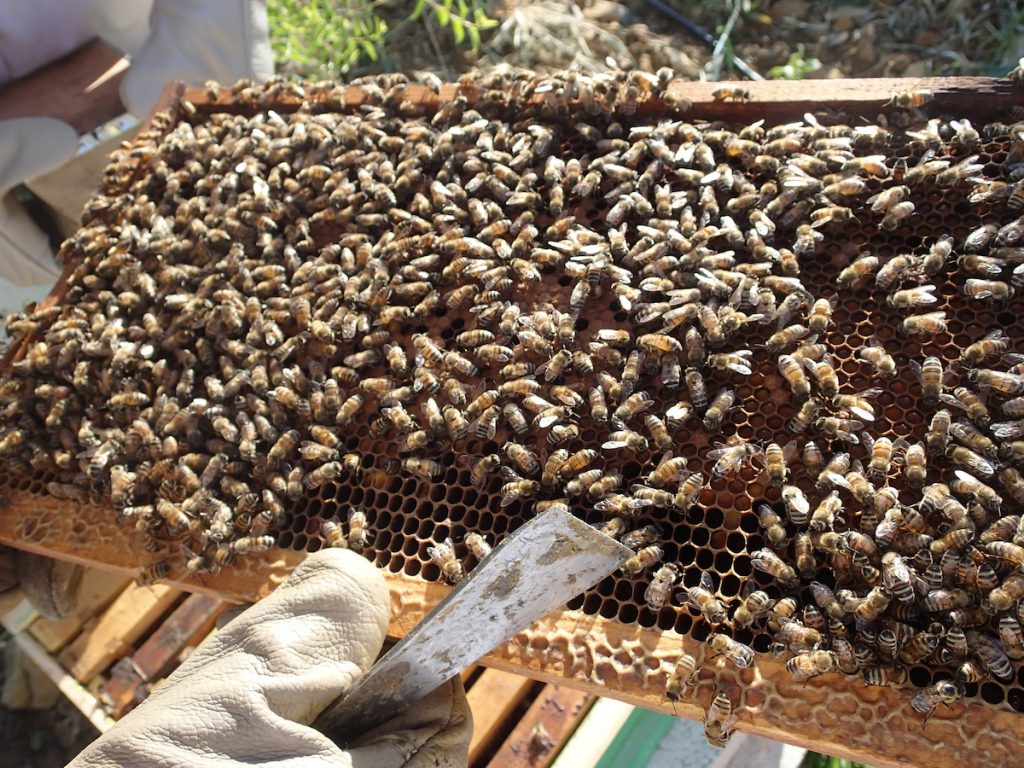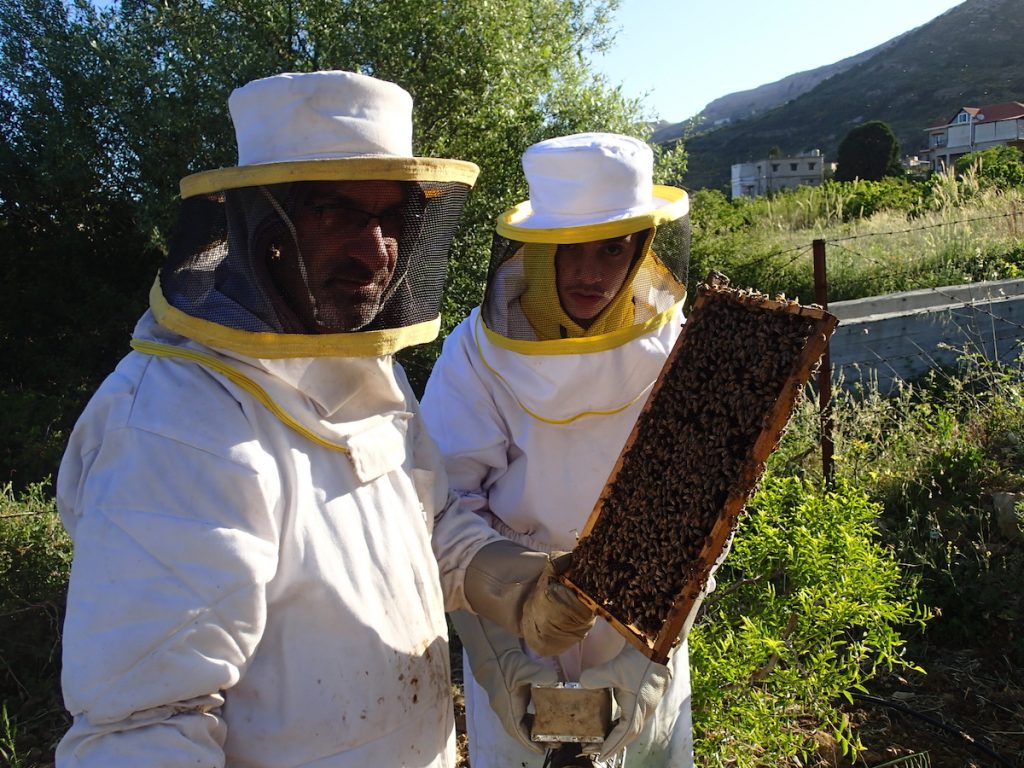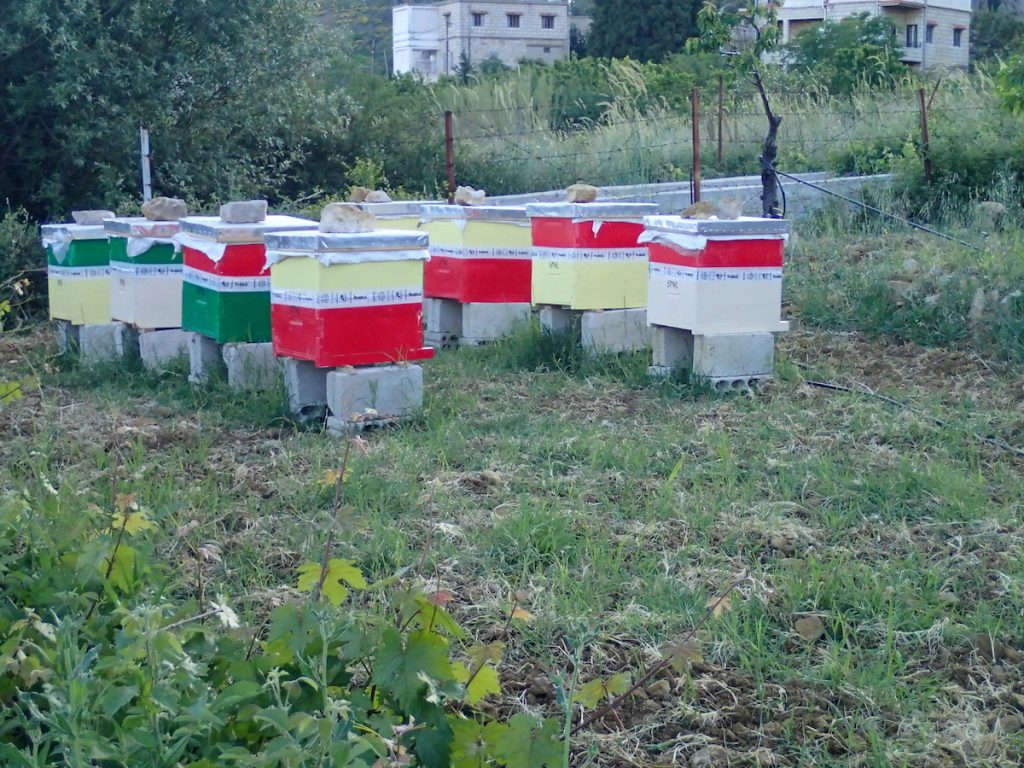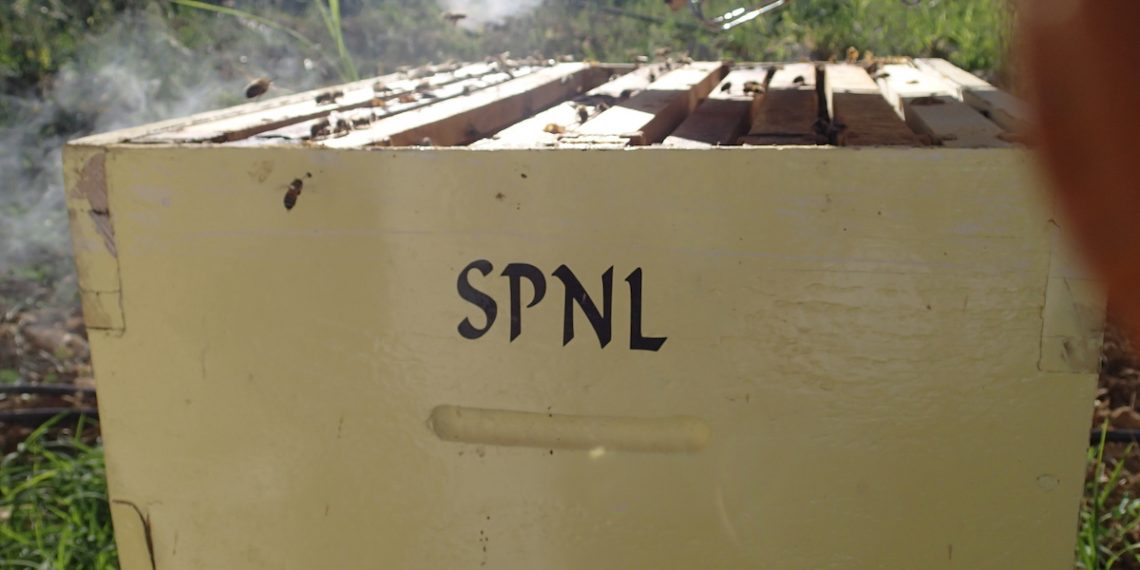
Apiculture keeping Hima Hammana sweet
Bees are social and hardworking insects that produce honey, pollen, royal jelly, beeswax, propolis, and venom.
In our Hima farm in Hammana, Mount Lebanon, the bees are working hard the greatest importance of honey bees to agriculture isn’t only the honey, it’s their work as crop pollinators.
Pollination is vital to approximately 250,000 species of flowering plants that depend on the transfer of pollen from flower anther to stigma to reproduce.
In addition to pollinating many of the Hima’s important fruits, vegetables and grasses, the honeybee produces flavorful honey, which has played a role in many culinary communities — including in Hammana.
- Photo Credit: Andre Bechara
The hospitable environment lends itself to an increasing number of folks keeping bees — many as a second career — to use honey at home, gift it to friends or even sell it locally. This honey can be substituted for sugar in many recipes and the shining star in others, like apple dumplings.
In these hard times, positive vibes and a positive attitude can make a difference. It is a time to detach from the speed of events in our lives and go back to our roots in an attempt to connect once more with the essence of life and find our way back to mother nature.
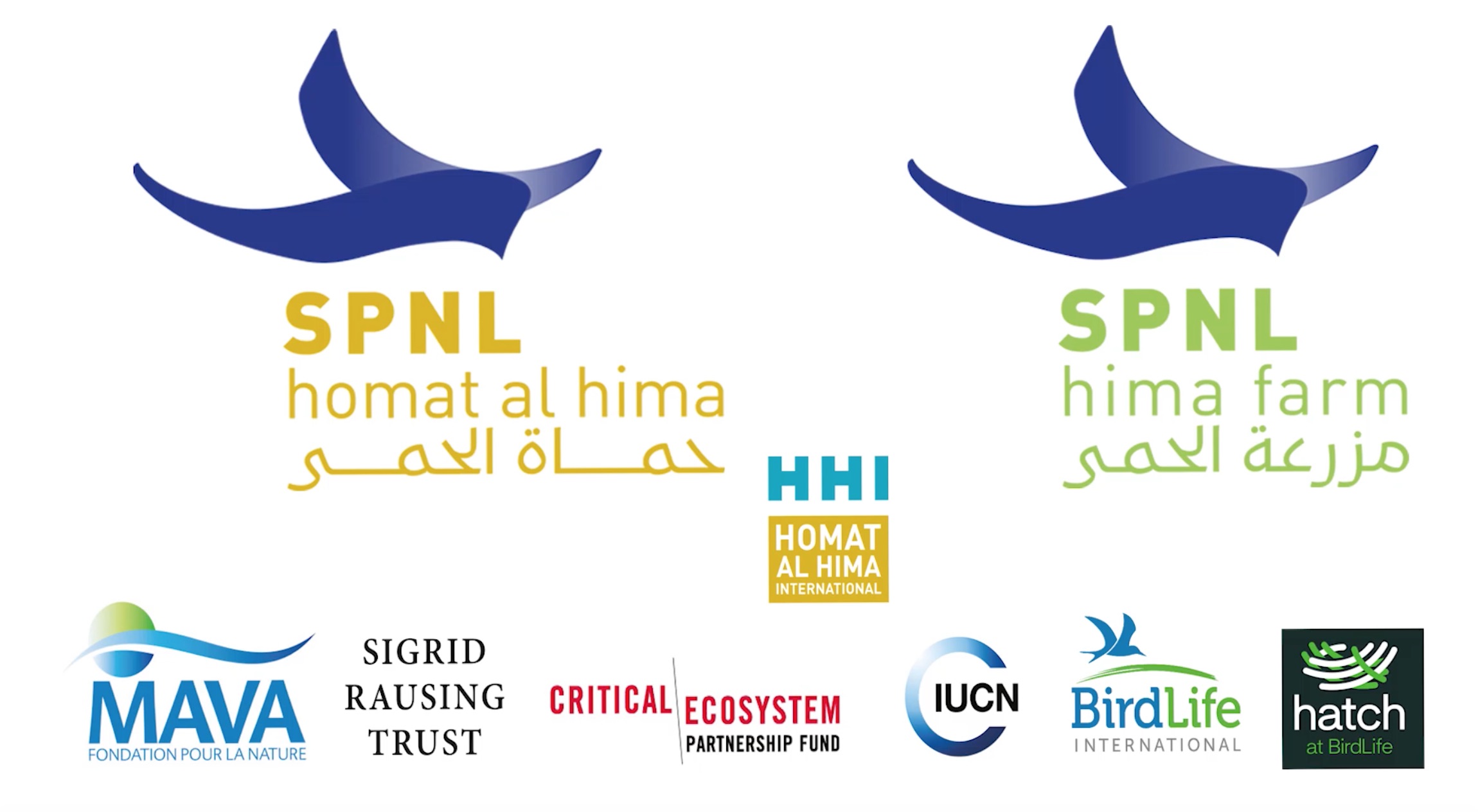
Background
Under SPNL’s Hima (Arabic for community-based protected areas) International Campaign, the Hima programs aim to develop a management plan for the Hima sites, helping to raise the quality of life of the local communities as well as connecting them with nature. The Hima, where humans live in harmony with their natural resources and with animals, is an ideal place for innovating and for promoting the health benefits of traditional agricultural products.
We are working with local farmers on ensuring environmentally friendly production, sustainable use of natural resources in such a way that they are conserving their heritage and local quality products.
SPNL is assisting the local farmers, planting and combining their traditional practices with certain innovative techniques. This creates a constant exchange of culture, traditions, and “know-how” from village to village.
We believe these practices valorize the health benefits of traditional foods, promoting their consumption with a promised level of quality.
Hima Farms have key values: conserving nature, reconnecting people with nature, organic farming, permaculture, the sustainable use of resources, no child labor, no hunting, raising the capacity of the locals, providing jobs for both locals and refugees, conserving native plants and herbs, offering financial sustainability and also securing the involvement of youth and women due to their status as underprivileged groups.
This program ensures cooperation with local farmers on a Sustainable Agriculture perspective (positive impact on the environment and guarantees healthy products), traditional production aiming at reviving and enhancing health and the environment.
